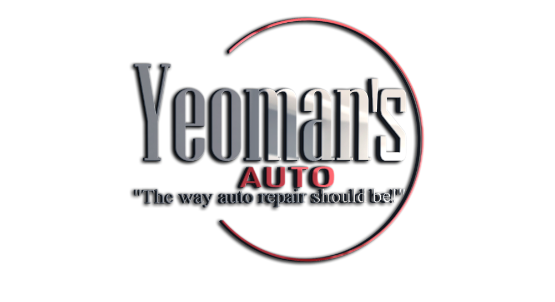Blog in Fort Wayne, Indiana
Check Out What Yeoman Service Center Has to Say!
What Does Your Check Engine Light Mean?
The Five Most Common Check Engine Light Causes
Although your dashboard may have multiple lights, the one that always seems to stick out is the one you never want to see: the check engine light. While the check engine light is there to alert you that something isn’t quite right, the problem with the check engine light is that it might come on for several reasons. Though it may not always indicate a severe problem, you may endanger your vehicle or possibly yourself if you ignore it.
In this article, we’ll take a look at the most common reasons your check engine light might come and why check engine light diagnostics is vital to ensure nothing major is wrong with your vehicle. If your car’s check engine light has gone on and you’re not sure what to do, bring it to Yeoman Service Center today and let our staff of mechanics perform a check engine light diagnostics check to help you avoid major auto repairs in the future.
Top 5 Reasons Your Check Engine Light is On
If your check engine light has turned on, always check your gas cap first, as it is often the reason your check engine light has suddenly lit up. However, if that doesn’t solve the issue, here is a brief list of the most common reasons your check engine light has turned on:
Oxygen Sensor
The oxygen sensor monitors and measures the amount of fuel consumed by the vehicle. Most vehicles have two to four oxygen sensors, and if one of them fails, the check engine light will turn on. A broken sensor will decrease gas mileage and raise emissions, but it can ruin the catalytic converter if left unchecked, which is an expensive repair if it happens to you.
Catalytic Converter Failure
Because it converts carbon monoxide from the engine into carbon dioxide through the exhaust system, a catalytic converter is crucial in the car’s exhaust system. While it’s not an overly complicated component, it is costly to replace, so keeping it in good working order is essential. Changing your car’s oil on a regular basis is one of the best ways to keep everything in working order.
Spark Plug or Ignition Coil Failure
Ignition coils produce the electricity that spark plugs use to ignite the engine’s cylinders, therefore any misfire in that process could cause the engine light to illuminate. When your spark plugs wear out, you may find that your automobile accelerates slowly. Faulty ignition coils can cause similar problems, so if you believe it’s a spark plug, it could be the ignition coil.
Airflow Sensor Failure
The mass airflow sensor monitors the amount of air that enters the engine and tells the car’s computer how much gasoline to put in. Blockages in airflow will often cause the sensor to fail and result in increased emissions or possibly complete failure.
Replace the Thermostat
The thermostat functions similarly to a standard home thermostat, with the exception that it controls the flow of coolant to the engine. If the coolant is contaminated with dirt or another substance, it might become corrosive, causing the engine to overheat.
Professional Check Engine Light Diagnostics in Fort Wayne, Indiana
If your check engine light has suddenly turned on, your vehicle may be alerting you to the fact that something serious may be wrong. The only way to be sure is to schedule a check engine light diagnostics test to verify the condition of your car.
At Yeoman Service Center, we aim to deliver professionally certified auto repair services and check engine light diagnostics for our Fort Wayne, Indiana customers. If the check engine light on your car, truck, or SUV has come on, and you’re unsure what the problem is, schedule a check engine light diagnostics check today to have one of our experts inspect it and get you back on the road safely.
